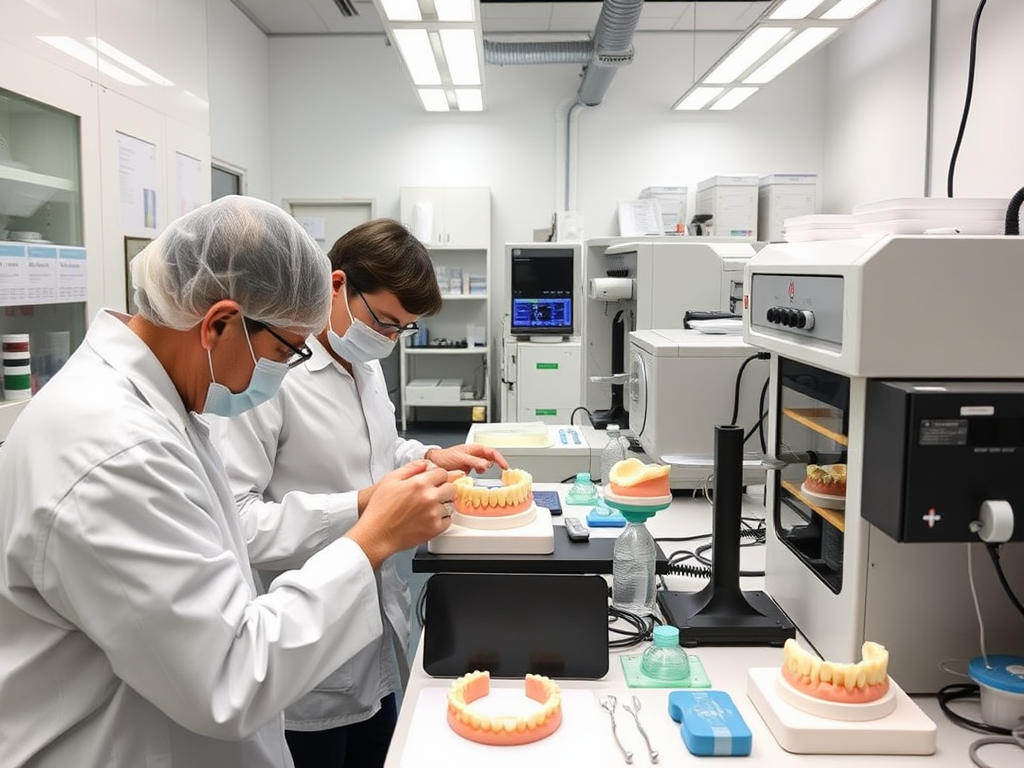Why Are Dental Engraving and Milling Machines Expensive, and Where Are They Expensive?
2024-11-19
2025-03-30
In the field of dentistry, the importance of quality cannot be overstated. The success of dental prosthetics, such as dentures, hinges on material performance, aesthetic appeal, and overall functionality. A well-implemented quality control system in denture manufacturing ensures that every product meets stringent standards of consistency and durability. In this blog post, we will explore the key quality control measures that denture manufacturing labs employ to achieve these goals.

Quality control (QC) refers to the systematic processes and procedures developed to ensure that produced items meet predetermined quality standards. In denture manufacturing, these standards are vital not only for patient satisfaction but also for the long-term success of dental restorations. Effective QC helps minimize product failures and enhances the reliability of dentures.
The foundation of durable and consistent dentures lies in the selection of high-quality materials. Denture manufacturing labs often conduct thorough testing of materials such as PMMA, zirconia, and glass ceramics. This includes assessing their mechanical properties, biocompatibility, and aesthetic attributes. Routine material evaluations ensure that only the best components are used in the fabrication process.
2.Standard Operating Procedures (SOPs)
Establishing and following standardized operating procedures is crucial for maintaining consistency in production. SOPs cover every aspect of the manufacturing process, from material preparation to final inspection. By adhering to these documented procedures, technicians can produce dentures that meet the same quality benchmarks every time.
3.Precision in Fabrication
The use of advanced technology, such as CAD/CAM (Computer-Aided Design and Computer-Aided Manufacturing) systems, plays a significant role in ensuring precision during fabrication. These technologies allow for exact measurements and designs, resulting in dentures that fit comfortably and securely. Regular calibration of machines and tools is essential to maintain accuracy.
4. In-Process Inspections
Quality control should be an ongoing process, not just a final check. In-process inspections at various stages of denture production ensure that any deviations from quality standards are detected and rectified early. This proactive approach helps to identify potential issues before they escalate into more significant problems.
5.Final Product Testing
After fabrication, each denture should undergo rigorous final inspections. This may include checking for aesthetic qualities, fit, and durability. Sample testing, such as stress tests and wear assessments, can also be performed to evaluate performance under typical usage conditions. Dentures that do not meet quality standards are removed from production until necessary corrections are made.
6.Feedback Loop from Dental Practitioners
Establishing a feedback mechanism with dental practitioners is an often-overlooked aspect of quality control. Denture labs can benefit immensely from the insights and experiences of dentists. By collecting feedback on the performance of their products, labs can continuously improve their processes and address any recurring issues.
7.Staff Training and Development
Investing in regular training and development of staff members ensures that technicians are well-versed in the latest techniques, materials, and quality control protocols. A knowledgeable workforce is essential for maintaining high-quality standards and adapting to new advancements in denture manufacturing.
8.Documentation and Traceability
Proper documentation of every production batch, including materials used, processes followed, and inspection results, is vital for traceability. In the event of a quality issue, this documentation allows manufacturers to trace back and identify the root cause, facilitating corrective actions and improving future production runs.
Implementing rigorous quality control measures is essential for any denture manufacturing lab aiming to deliver consistent and durable products. By focusing on material quality, adhering to standardized procedures, employing advanced technology, and fostering open communication with dental practitioners, these labs can enhance the reliability of their dentures significantly. Ultimately, a strong commitment to quality control not only benefits the manufacturer but, more importantly, contributes to improved patient satisfaction and outcomes in dental care.